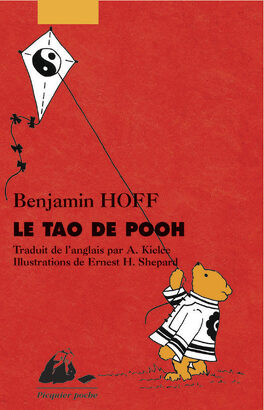Ajouter un extrait
Liste des extraits
To Buddha, the second figure in the painting, life on earth was bitter, filled with attachments and desires that led to suffering. The world was seen as a setter of traps, a generator of illusions, a revolving wheel of pain for all creatures.
Afficher en entierAccording to Lao-tse, the more man interfered with the natural balance produced and governed by the universal laws, the further away the harmony retreated into the distance. The more forcing, the more trouble. Whether heavy or light, wet or dry, fast or slow, everything had its own nature already within it, which could not be violated without causing difficulties. When abstract and arbitrary rules were imposed from the outside, struggle was inevitable. Only then did life become sour.
Afficher en entierA basic principle of Lao-tse's teaching was that this Way of the Universe could not be adequately described in words, and that it would be insulting both to its unlimited power and to the intelligent human mind to attempt to do so. Still, its nature could be understood, and those who cared the most about it, and the life from which it was inseparable, understood it best.
Over the centuries Lao-tse's classic teachings were developed and divided into philosophical, monastic, and folk religious forms. All of these could be included under the general heading of Taoism. But the basic Taoism that we are con- cerned with here is simply a particular way of ap- preciating, learning from, and working with what- ever happens in everyday life. From the Taoist point of view, the natural result of this harmonious way of living is happiness.
Afficher en entierThe essence of the principle of the Uncarved Block is that things in their original simplicity con- tain their own natural power, power that is easily spoiled and lost when that simplicity is changed.
Afficher en entierWhen you discard arrogance, complexity, and a few other things that get in the way, sooner or later you will discover that simple, childlike, and mysterious secret known to those of the Uncarved Block: Life is Fun.
Afficher en entierFrom the state of the Uncarved Block comes the ability to enjoy the simple and the quiet, the natural and the plain. Along with that comes the ability to do things spontaneously and have them work, odd as that may appear to others at times. As Piglet put it in Winnie-the-Pooh, "Pooh hasn't much Brain, but he never comes to any harm. He does silly things and they turn out right."
Afficher en entierTo begin with, it is necessary to point out that in China, scholars were generally Confucianist in training and orientation, and therefore often spoke a somewhat different language from the Taoists, who tended to see Confucianist scholars as busy ants spoiling the picnic of life, rushing back and forth to pick up the bits and pieces dropped from above. In the final section of the Tao Te Ching, Lao-tse wrote, "The wise are not learned; the learned are not wise"—an attitude shared by countless Taoists before and since.
Afficher en entierThe Confusionist, Desiccated
Scholar is one who studies Knowledge for the sake of Knowledge, and who keeps what he learns to himself or to his own small group, writing pompous and pretentious papers that no one else can under- stand, rather than working for the enlightenment of others.
Afficher en entierCleverness, after all, has its limitations. Its me- chanical judgments and clever remarks tend to prove inaccurate with passing time, because it doesn't look very deeply into things to begin with. As in Rabbit's case, it has to change its opinions later on because of what it didn't see when it was forming them. The thing that makes someone truly different—unique, in fact—is something that Clev- erness cannot really understand.
Afficher en entier"You complain that your tree is not valuable as lumber. But you could make use of the shade it provides, rest under its sheltering branches, and stroll beneath it, admiring its character and ap- pearance. Since it would not be endangered by an axe, what could threaten its existence? It is useless to you only because you want to make it into some- thing else and do not use it in its proper way."
Afficher en entier


